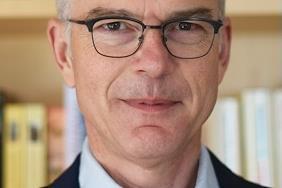Chancellor Olaf Scholz and other members of the delegation of the German government held talks with representatives of Canadian pension funds, adding that investment opportunities for pension funds in Germany were addressed, a spokesperson for the ministry for economic affairs and climate action confirmed to IPE.
After a meeting with representatives of several pension funds in Canada, the German chancellor pointed out that they reaffirmed their interest in investing in sustainable projects in Germany, Reuters has also reported.
The talks took place during Scholz’s three-day trip to Canadian cities of Stephenville, Montreal and Toronto, where he also met with prime minister Justin Trudeau accompanied by the minister for economics and climate action Robert Habeck and a business delegation.
The focus of the trip was on the bilateral cooperation in the field of climate and energy. The chancellor spoke with the pension funds about investments in general, although energy and renewable energy were topical, the sources said.
Scholz had also planned talks with the United Nations special envoy for climate action and finance Mark Carney, according to the chancellor’s schedule.
During the visit, Habeck and the Canadian minister of natural resources, Jonathan Wilkinson, signed the German-Canadian hydrogen agreement, officially called ”Canada-Germany Hydrogen Alliance”.
Green hydrogen will be produced in the provinces of Newfoundland and Labrador, Nova Scotia, and New Brunswick in Canada, primarily using wind power, and then shipped across the Atlantic to Germany as ammonia, the Ministry for Economic Affairs and Climate Action said.
Germany is trying to wean itself off Russian energy sources after the invasion of Ukraine.
According to the agreement, the partners will facilitate the trade of hydrogen and its derivatives between Germany and Canada, starting with the export in 2025.
Germany will support the import of hydrogen and its derivatives in order to establish an international trade corridor with Canada and other countries to diversify the import of hydrogen in the future, according to the trade deal.
The partners will promote bilateral and multilateral research and development efforts to improve the production of hydrogen and hydrogen-related infrastructure.
The latest digital edition of IPE’s magazine is now available












